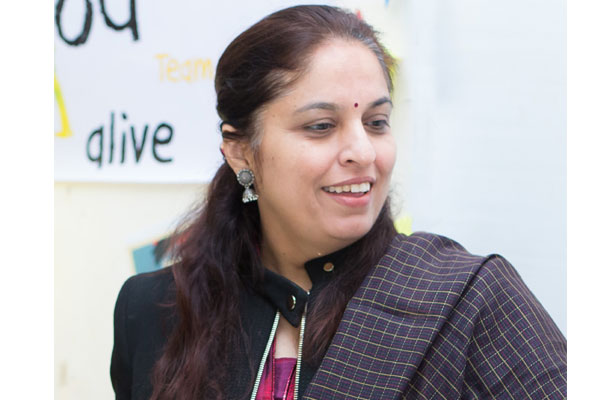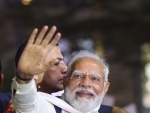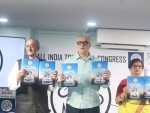
Are we denying our children their first food and medicine?
Scientific research states that within 6 hours of a child’s birth, the newborn must be breastfed by the mother to ensure that s/he is receiving the first and best possible guard against antigens; and children should be exclusively breastfed in the first 6 months of their life. Neither is this expensive, nor unavailable in most cases. And even then, the numbers say that only 55% of children in the age group of 0-6 years are exclusively breastfed for the first 6 months of their lives. More worrying is the fact that the percentage of children breastfed within the very first hour of birth drops to a low of 42%. In other words, only 2 in every 5 children have colostrums.
While a comparative analysis of the NFHS 3 and NFHS 4 data shows an indication of the situation getting better over the decade, the overall numbers are not very encouraging yet. If we take a look at the five states of Assam, Bihar, Jharkhand, Odisha and West Bengal, in the Eastern part of the country, it is visible that there is an upward trend in all of them.
In a few of these states the growth for children being breastfed within the first hour of birth, in fact, is remarkable for a decade. When it comes to children under 6 months of age exclusively breastfed, however, Assam sees a growth of only 0.4 percentage points, Bihar a growth of 25.5 percentage points , Jharkhand a growth of 7 percentage points, and Odisha a growth of 14.8 percentage points and West Bengal actually sees a de-growth of 6.3 percentage points. Needless to say, that on health grounds for our children, this slow growth rate and de-growth in some cases is rather worrying. The national figures of children under the age of 6 months being exclusively breastfed (54.9%) is actually just a rise of 8.5 percentage points from the NFHS III reports, which means less than one percentage point per year and that is not very encouraging either.
While lack of access to exclusive breastfeeding is not the only reason for child malnutrition, it is certainly one of major reasons amounting to undernourishment of the child. In this country that is home to 444 million children (Census 2011), more than 18 million children below 6 years of age are undernourished. Going by the numbers and the pace in which the inclination to breastfeed our children is growing, it is evident that we are keeping our children away from the healthy growth path. It is not surprising then, that 38.4% children under the age of 5 years in our country are stunted, 21% are wasted and 35.7% are underweight (NFHS IV).
A closer look at the situation in the above mentioned Eastern states (for children below 5 years) shows a state of affairs which is not very encouraging at all.
It is scientifically proven that colostrums is not only the best food for infants, but also the best natural medicine, acting as a crucial protective shield against antigens. Breast milk protects the child from stunting, wasting and other nutritional deficiencies. It even affects the development of the brain positively. It is also known that the child is most vulnerable during the first 28 days after its birth and most susceptible to death. It is the mother’s milk that builds natural immunity subsequently protecting the child during this extremely critical period.
Data from NFHS IV also statistically corroborates this fact as clearly the infant mortality rate (IMR, deaths per 1,000 live births of children below one year of age) has declined from 78.5 in 1992-93 to 41 in 2015-16, arguably due to this very slight increase in early breastfeeding practices. Which means, very simply put, with the spread of this practice, the rate can be brought down even more.
India is a land infested with limited knowledge and awareness of simple healthcare practices, especially those related to newborn babies and pregnant and lactating women. In many corners of the country, both remote and accessible, many of the mothers do not even have the information about the significance of breast milk, especially that of the first milk, for their newborns and in most cases are discouraged to feed them. In some other areas, this colostrums feed is extracted and not given to the newborn because of associated misbelief and superstition. Folklores and stories that have been handed down over generations have stopped many families from encouraging this habit to grow. In some cases where the lactating mothers are unable to feed the child due to clinical reasons, or themselves are undernourished to be able to feed their children, have added to the woe.
It is ironic that in a country where access and expense are usually the primary reasons why children are denied of the crucial healthcare facilities, it is in fact, lack of awareness and education that is keeping our children away from a protective shield that is not only their birthright, but also well within their reach.
(Komal Ganotra, the author of this article, is the Director of Policy Research and Advocacy at CRY – Child Rights and You)
Support Our Journalism
We cannot do without you.. your contribution supports unbiased journalism
IBNS is not driven by any ism- not wokeism, not racism, not skewed secularism, not hyper right-wing or left liberal ideals, nor by any hardline religious beliefs or hyper nationalism. We want to serve you good old objective news, as they are. We do not judge or preach. We let people decide for themselves. We only try to present factual and well-sourced news.







